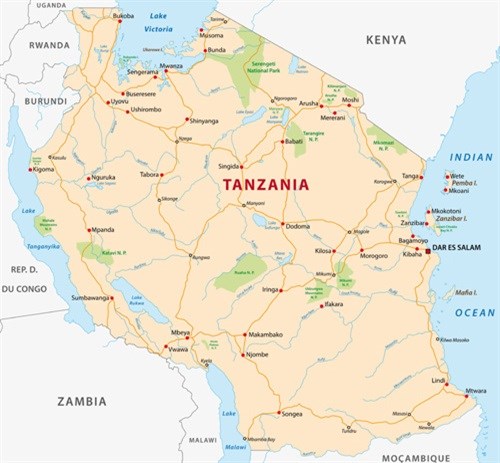The economy of Tanzania, a country of 48-million people, is expected to grow at around 7.2% in 2014, according to the International Monetary Fund. According to the State of East Africa 2013 report, buoyed by vast energy resources, Uganda and Tanzania attracted 90% of the foreign direct investment (FDI) in 2012 in the East African region, receiving a combined total inflow of US$3.4 billion of the $3.9 billion in 2012, which was a $1.8 billion increase from $2.6 billion in 2011.
"The region is expanding and offers potential for Southern African companies looking to add to their trade resources," comments Michelle du Toit, operations director of Beyond Africa Logistics Consultants, a Kenyan and South African based logistics company.
Agriculture is the pillar of Tanzanian economy with its coffee, black tea and honey drawing interest from Asian markets. However, China is financing the $1.2 billion construction of a 532-kilometre gas pipeline linking recently discovered gas reserves in the south of the country and northern Mozambique to the port of Dar es Salaam.
"Recent international investments and government spending plans could see this country make considerable strides in 2014," adds Ruth Butcher, business development director.

© lesniewski - Fotolia.com
New port opens interior trade
An agreement with the government of China to build a $10 billion new port at the historical port city of Bagamoyo will see construction begin in January 2014. The new port will be the biggest in Africa and handle some 20 million TEUs a year when complete, compared with the 800 000 TEUs current throughput at Dar es Salaam.
The project will include the building of a 34-kilometre road joining Bagamoyo to Mlandizi and 65 kilometres of railway connecting Bagamoyo to the Tanzania-Zambia Railway and the Central Railway.
The port is expected to be completed in 2017 and run by Chinese operators. The new port will ease congestion at Dar es Salaam, which may find other business in niche areas.
The new port is good news for the landlocked neighbouring countries of Rwanda, Burundi and Uganda, which will have a choice of importing and exporting through Mombasa, Kenya, or Dar es Salaam. The development may negatively affect Mombasa, as shipping lines may prefer to call directly at Bagamoyo new port. Inefficiencies at Mombasa can add 50-80% to the time required to move imports to landlocked countries
The Ukrainian company, Altec, announced in December 2013 that it has set aside US $10 billion to invest in oil & gas, seaport and airport services. It is a global company providing products and services in industries, seaport, airport and contractor markets and delivers products and services in more than 100 countries throughout the world.
The marine services sector is also undergoing rehabilitation with at least three modern vessels being constructed at Mwanza South Port. One of the vessels will be deployed to Lake Tanganyika and another to Lake Victoria.
The Tanzania Ports Authority (TPA) managed to handle 13 million tons last year, compared to 12 million tons in 2012 and 10.3 million tons the previous year. Other performance indicators include managing to attract new businesses from foreign countries such as the DRC, Uganda, Rwanda, Burundi, Zambia and Malawi.
Export Zone to be developed
The Export Processing Zone Authority (EPZA) and Tanzania Ports Authority (TPA) have entered into an agreement that will see the development of a 10-hectare Mtwara Freeport zone. This agreement is the first phase of the development of a 110-hectare Mtwara Freeport area that has been designated by the government for investment purposes.
"Our extensive experience in sea, air and road freight is complemented by our onsite knowledge of East Africa, making us an ideal partner for trade expansion into this thriving country," concludes Butcher.
Beyond Africa Logistics Consultants aims to establish collaborative relationships with customers and suppliers to improve communications and efficiency in the overall management of trade flow logistics from supplier to purchaser, using air, road or sea options. It operates from a dedicated South African and Kenyan office.






































